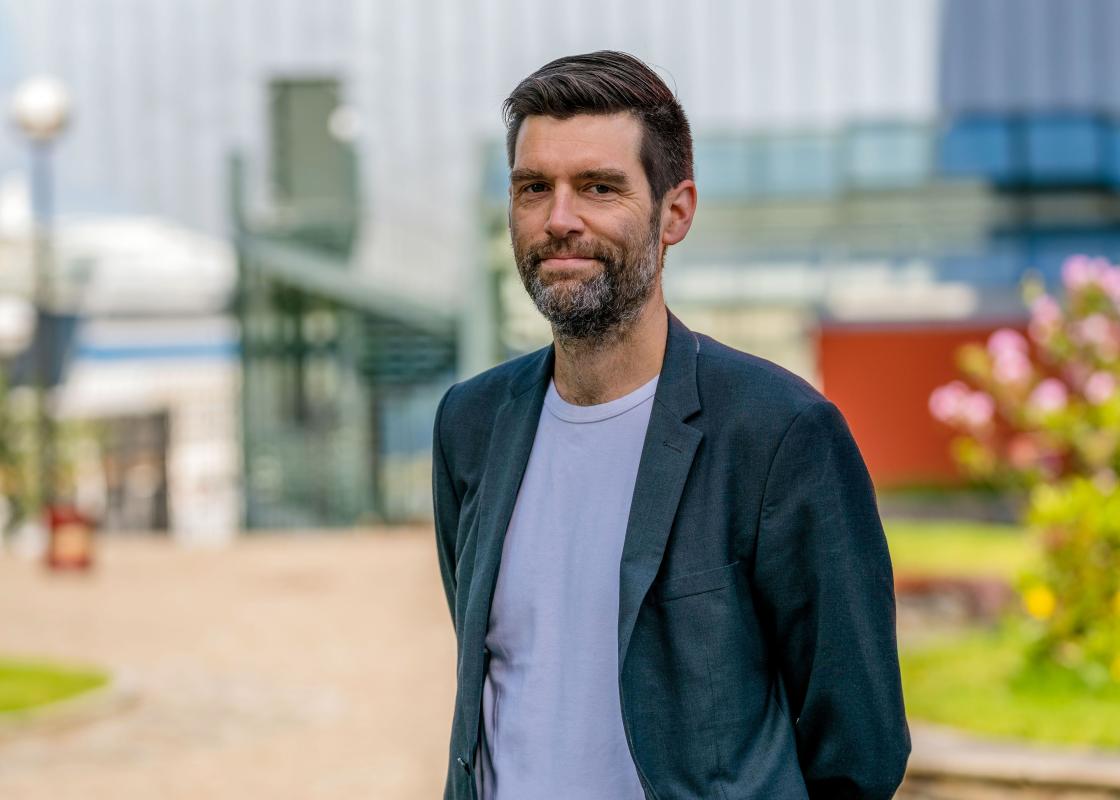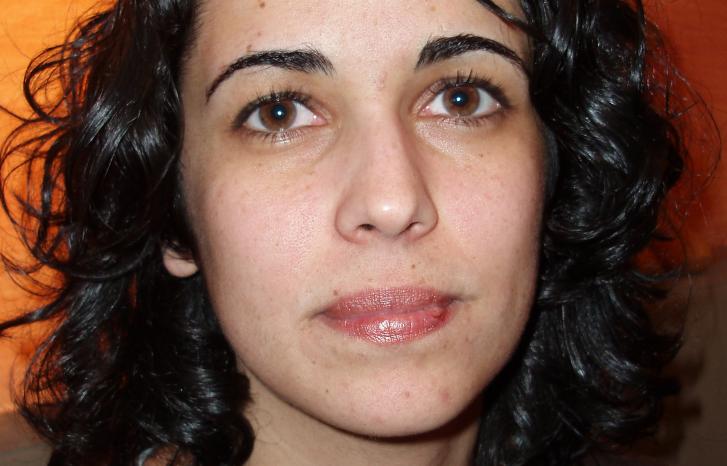The Government is considering a draft bill from the Penal Code Council on a reform of the sexual offence legislation in Norway.
Bleak figures are forming the basis for the reform debate. For example, one of five women experience rape during their lifetime, and only four per cent of all sexual assaults end with the perpetrator being convicted.
Activists are vocal in demanding a consent law – a law that establishes that sex without consent is rape, and that “only yes means yes”.
The draft bill from the Penal Code Council, on the other hand, takes another approach. “No means no”.
Amnesty International, one of the foremost advocates of a consent law, believes that this bill is not in line with the Council of Europe Convention on preventing and combating violence against women and domestic violence (the Istanbul Convention).
Professor of law at the University of Bergen, Jørn Jacobsen, does not agree.
“The international framework for this discussion is more complicated and open to interpretation than it is often portrayed as,” he says.
- In December 2022, the Penal Code Council submitted Norwegian Official Report NOU 2022:21 “Criminal protection of the right to sexual self-determination – Proposal for a reform of the Penal Code Chapter 26” (in Norwegian only) to Minister of Justice Emilie Enger Mehl (Norwegian Centre Party).
- The purpose of the report was to “conduct a comprehensive review of the Penal Code’s provisions on sexual offences, including the penal provision on rape,” in line with the Government’s action plan against rape.
- Today, the provisions on rape require proof of the use of violence, coercion or threats. The Penal Code Council proposes to change the code, so that it also targets anyone who “engages in sexual activity with someone who does not want it and who expresses this in words or actions”.
This is called a “no means no” model. Several parties, including Amnesty, have criticised the Penal Code Council’s proposal, advocating an “only yes means yes” model – that consent should be actively given, in words or actions.
Source: Regjeringen.no, Lovdata.no
“Norway has leeway”
Jacobsen has opinions about what form the Norwegian sexual offence legislation should take. But he is just as keen to make the point that this is a discussion that is worth having in Norway, because it will give rise to reflection and bring the legislation in line with public opinion. This is something we have the power to influence, he says.
In his article on human rights, the Istanbul Convention and the reform of the criminal legislation on sexual offences (“Menneskerettane, Istanbulkonvensjonen og reform av seksualstraffelovgjevinga”), printed in the Norwegian law journal Lov og Rett, Jacobsen reviews international conventions Norway has ratified in this field, and discusses Norway’s scope of action now that it is set to reform the country’s legislation on rape and sexual offences.
“There is probably more leeway for Norwegian society than the debate sometimes suggests, both to determine how we should define rape, and how we should handle these offences within the criminal justice system,” he says.
A democratic privilege
“Why is it important for Norway to have the leeway to define this on it's own? If the international conventions provide good guidance, can’t we just use them?”
“It is important that the criminal laws we adopt are well thought out. They must also align with values and objectives both in public debate and within the legal system. It is a democratic privilege to be able to make these choices ourselves, naturally within the framework of our international obligations,” says Jacobsen.
“Discussing and forming an opinion can be one of the most important aspects of the reform process and the work against sexual assault. It spreads reflection and knowledge about this field in a completely different way than simply implementing a package that comes from outside.”
Deems Amnesty’s interpretation too narrow
With slogans such as “Silence is not consent – only yes means yes!” Amnesty has long urged Norway to adopt what is called a real consent law, defining rape as sex without freely given consent.
As part of its argumentation, Amnesty often refers to GREVIO, a group of experts appointed by the Council of Europe to monitor the implementation of the Istanbul Convention. GREVIO has criticised Norway’s legislation for not meeting the requirements of the Istanbul Convention, partly because the Norwegian provision on rape is not solely based on absence of consent.
Jacobsen thinks both Amnesty and GREVIO interpret the Istanbul Convention too narrowly.
“Amnesty has been an important force in driving the discussion on the reform of sexual offence legislation in Norway, which I also believe is necessary. However, I think Amnesty has gone a bit too far by claiming that their model is the only correct one if we want to live up to the Istanbul Convention and our international obligations,” he explains.
Many possible models
Jacobsen explains that such conventions are based on cooperation between independent states, and that they provide general guidelines for what should be prosecuted and how.
“But it’s rarely regulated in detail. The Istanbul Convention stipulates that sexual acts without consent should be criminalised, but not necessarily that they have to be criminalised as rape. Eventually, we may well reach a ‘European consensus’ that will affect the interpretation of the Convention. But we’re not there yet.”
“There is no provision in the code that covers sexual activity without consent.”
Therefore, Jacobsen believes that Norway, like other countries party to the Convention, has the opportunity to exercise discretion and formulate its own laws.
“There are many possible models: Sweden’s solution is based on voluntariness, Denmark has its consent solution, and Germany has yet another variant.”
“My point is simply that we must not think that we don’t have choices in this context, and that we should discuss the strengths and weaknesses of different solutions.”
- The “Council of Europe Convention on preventing and combating violence against women and domestic violence” was opened for signature in 2011 during a ministerial meeting in Istanbul, and is often referred to as the Istanbul Convention.
- Norway has signed and ratified the Convention and is therefore obliged to comply with it.
GREVIO has criticised Norwegian legislation because sexual violence is not based on the absence of freely given consent. In its response to GREVIO, the Government refers to the ongoing process of revising the penal code, and does not comment on GREVIO’s criticism.
Sources: Lovdata.no, regjeringen.no, GREVIO.
“Only yes means yes”
Policy adviser at Amnesty Patricia Kaatee is just as puzzled by Jacobsen’s interpretation of the Istanbul Convention as Jacobsen is by Amnesty’s.

Patricia Kaatee, Policy adviser at Amnesty, is puzzled by Jørn Jacobsen’s interpretation of the Istanbul Convention. Photo: Amnesty
“Is it true that Amnesty believes that Norway must adopt an ‘only yes means yes’ law in order to meet the requirements of the Istanbul Convention?”
“The simple answer is yes. But I would put it that there is only one way to live up to the standard set by the Istanbul Convention. That is to have a rape provision that assumes that rape is sexual activity without freely given consent, where consent must be assessed in light of the surrounding circumstances,” says Kaatee.
“But that does not mean that a real consent law can only be worded in one specific way. As long as there is real consent, there is scope to exercise discretion when formulating the legislation, within the framework of the Istanbul Convention.”
Nor do the two agree on the role of the monitoring body GREVIO. GREVIO’s claim that not all forms of sexual violence are criminalised in Norway is also supported by Amnesty.
Central to the disagreement is Section 297 of the Penal Code, which stipulates that sexual acts performed without consent are punishable by up to one year’s imprisonment.
Despite the fact that Jacobsen is not satisfied with the penalty range provided by this provision, he writes in his article that this section makes all sexual acts without consent illegal in Norway.
Amnesty supports GREVIO
Kaatee in Amnesty both supports and bases her position on GREVIO:
“GREVIO disagrees with Jacobsen on this point, and we agree with GREVIO. There is no provision in the code that covers sexual activity without consent,” she explains.
“Section 297 of the Penal Code criminalises less serious sexual offences and is rarely used for criminal prosecution of intercourse or intercourse-like acts without consent.”
According to Kaatee, this is also the clear conclusion presented by the government-appointed Rape Commission (Voldtektsutvalget) in the report NOU 2024:4 earlier this year.
She also points out that offences that are prosecuted under Section 297 do not entail a right to counsel, and that they have a limitation period of two years. This means that victims who take a long time to report cannot use this section. Offences prosecuted under the rape provisions have no statute of limitations.
“It is thus illusory to claim that sexual activity without consent is criminalised in Norway by referring to this provision in the Penal Code,” says Kaatee.
“Arrogant to pick a fight with GREVIO”
Kaatee also defends GREVIO’s professional authority.
“Norway has helped to negotiate the standards in the Istanbul Convention and helps to elect the independent representatives to the GREVIO expert group, which monitors its implementation.
GREVIO works systematically over time with authorities, civil society organisations, researchers and academics when they prepare their country reports.
According to Kaatee, GREVIO is the authority on the obligations of the Istanbul Convention.
"I find it a bit arrogant that a professor from Bergen, who hasn’t been involved in making these thorough assessments, claims that the GREVIO experts don't know what they’re talking about.”
Already adopted by the Storting
Kaatee agrees with Jacobsen on the need for democratic and popular support for laws that are to apply in Norway. However, she thinks the process has largely already taken place.
“Norwegian bureaucrats helped to negotiate the Istanbul Convention. Civil society organisations such as Amnesty also had the opportunity to provide input during the process,” she points out.
Since then, the Storting has discussed and reviewed the Convention, before it was ratified in 2017. This parliamentary resolution made the Convention a binding human rights treaty for Norway, Kaatee explains.
“The Norwegian democracy primarily resides in the Storting, and the democratic foundation of the Istanbul Convention is thus rooted in the Storting’s decision from 2017.”
Need for reform
Although Jacobsen disagrees with Amnesty on a lot of things, he also recognises the need to change the current provisions. However, the core of the problem, as he describes it, is not how consent is defined.
“The way I see it, the biggest problem is that over time we have expanded our definition of rape, while our definitions for other forms of sexual offences have not developed in the same way,” he says.
The situation today is that there is too big a gap between rape, which is punished severely, and other sexual offences, which are punished much more leniently."
Would like a more tiered system
Today, the Penal Code stipulates that rape is punishable by up to 15 years’ imprisonment. “Aggravated sexual assault” can be punishable by up to 21 years’ imprisonment. Sexual offences that are not classified as rape can be prosecuted under the previously mentioned Section 297, which has a maximum penalty of one year. Jacobsen wants a more tiered system.
“I find it problematic that legal distinctions have such a significant impact on how a case is handled and what the outcome is,” he says.
"We should instead have a legal framework with multiple levels. That way, we can emphasise the severity without defining all assaults as rape – which I believe should be reserved for the most serious category.”
The big question: what does “yes” and “no” mean?
Today, rape is defined based on whether violence, coercion or threats have been used. That means even cases most people would perceive as serious violations will not be defined as rape if these elements are not present. Jacobsen thinks it is important to do something about this. But where Amnesty believes that “only yes means yes”, he thinks it is better to adhere to “no means no” – as the reform proposal from the Penal Code Council also advocates.
“It’s difficult to define what constitutes a ‘yes’. Is a nod a yes, or is it undressing and lying down in bed? What if the person who says yes is intoxicated?’ he asks.
“We don’t want to criminalise sexual activity without freely given consent to put as many people in prison as possible.”
The Danish version of the consent law allows for passivity to be considered consent in certain situations. Jacobsen thinks that such a model places a great deal of interpretive responsibility on the courts and can create uncertainty for both the victim and the accused.
“But the moment you have a clear ‘no’, there is nothing more to discuss. It is always wrong to have sex with someone who expresses that they don’t want to,” he says.
“That is a very clear distinction, which clearly defines the concept of rape as the most serious criminal offence in this area, with a reasonable scope. We should then have alternative criminal provisions to address more complicated cases where there is ambivalence, a power imbalance, or similar factors.”
Not just about punishment
Kaatee, on the other hand, believes that it is just as difficult to prove resistance as lack of consent, and that in both cases there is the same problem with the fact that in many rape cases, it's word against word. She also thinks there is no doubt that the main rule in the Danish consent law is that passivity does not count as a “yes”.
“The matter of evidence is difficult in rape cases, and that will not change with a consent law. The Penal Code Council believes that small signs, such as shaking your head, can be a sufficient expression of resistance,” she says.
“I think this is neither easier nor more difficult to prove in court than that a victim of rape freezes in fear and becomes passive during an assault. The most important principle on which the Istanbul Convention is based is that consent must be assessed in the light of surrounding circumstances.”
Kaatee points out that a consent law is not just about punishment:
“We don’t want to criminalise sexual activity without freely given consent to put as many people in prison as possible. We are focused on clarifying a norm that prevents harm and can serve as a basis for awareness-raising and preventive work.”



